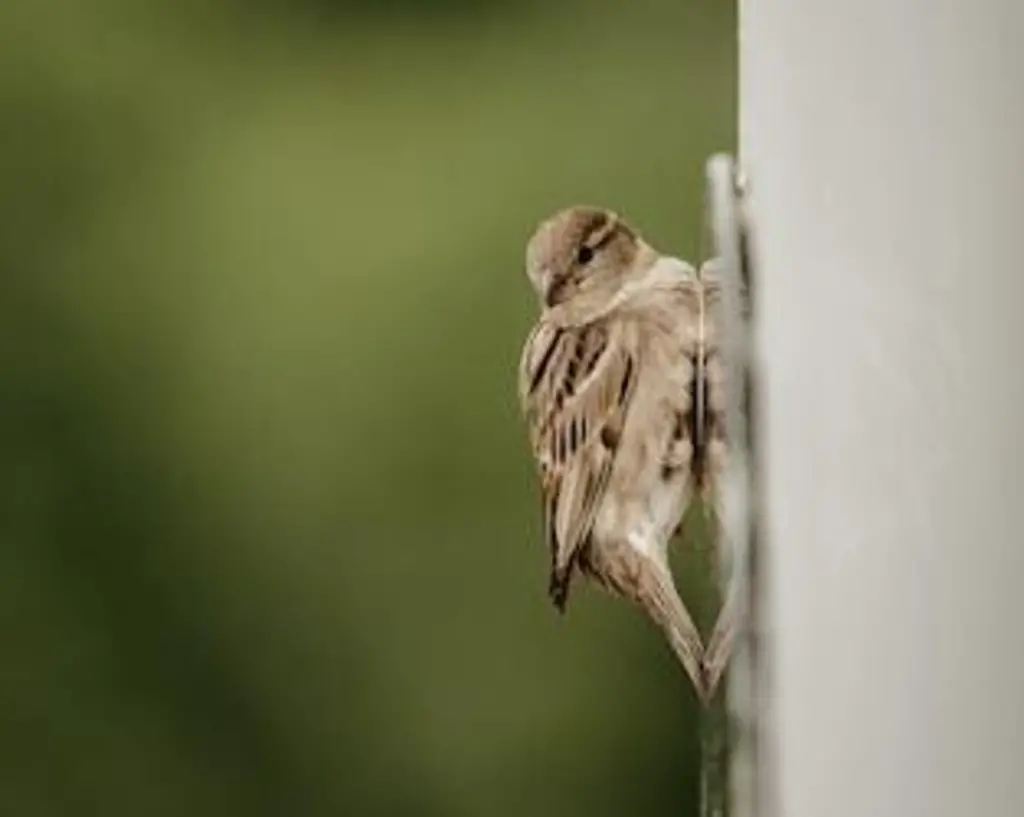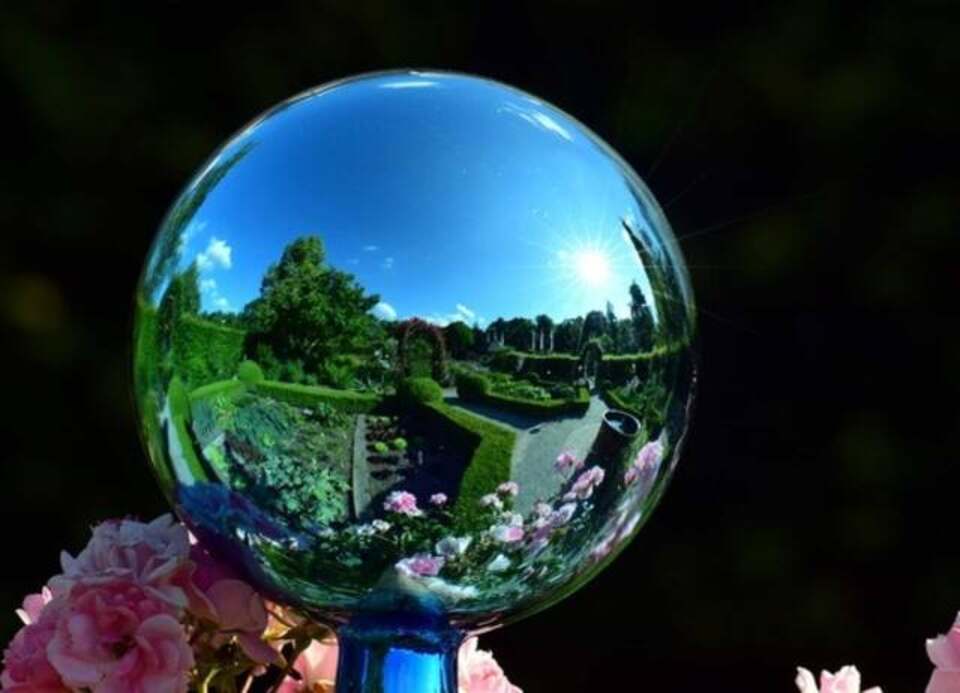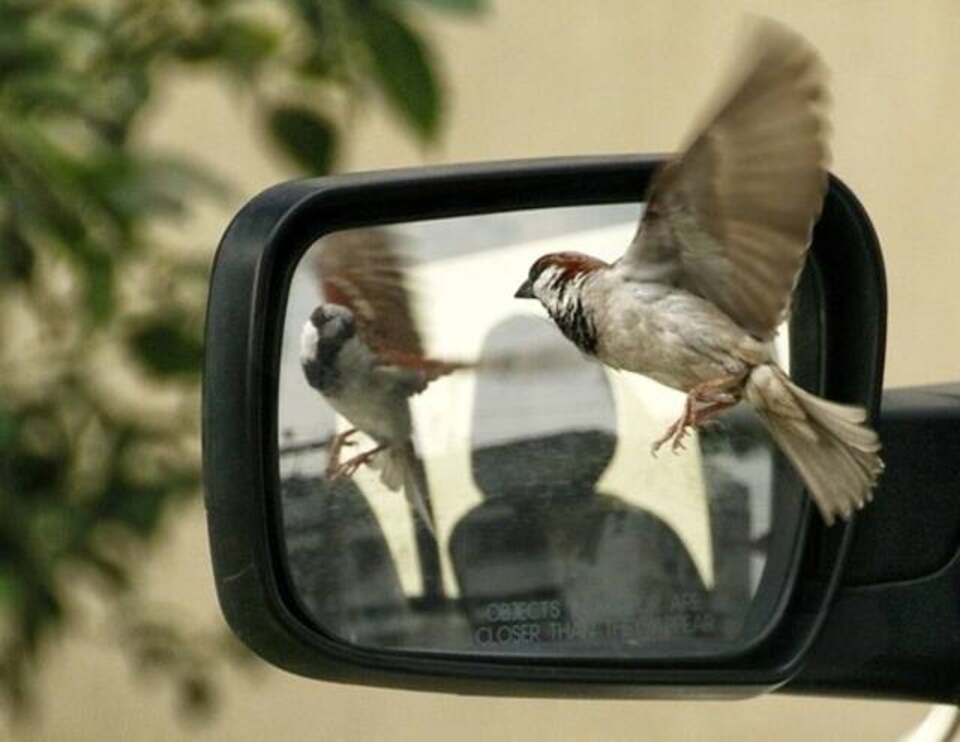If you’ve ever wondered, do birds like mirrors in the garden? The answer is yes, but it’s more complicated than just being attracted to their reflection. Birds may be curious about the mirror, but it can cause stress or confusion, as they might mistake their reflection for another bird. It’s important to understand how mirrors can affect birds’ behavior before placing them in your garden. In this article, we’ll look at how mirrors impact birds and whether they’re a good addition to your garden space.
Table of Contents
The Pros and Cons of Garden Mirrors
The Aesthetic Appeal: Enhancing Your Garden’s Visual Impact
Garden mirrors have become increasingly popular among landscape designers and homeowners alike. Their ability to create illusions of space and reflect light into shaded areas makes them a tempting addition to any outdoor setting. I remember the first time I installed a large, ornate mirror in my own garden, nestled between climbing roses and ivy. The effect was stunning, transforming a once-dull corner into a magical space that seemed to extend far beyond its physical boundaries.
However, the initial enchantment quickly gave way to concern as I observed the unexpected reactions of my garden’s feathered visitors. This experience led me to dig deeper into the relationship between birds and reflective surfaces in outdoor environments.
The Unintended Consequences: When Reflections Become Deceptions
While mirrors can undoubtedly enhance the visual appeal of a garden, their impact on bird behavior can be problematic. Birds, unlike humans, lack the cognitive ability to recognize their own reflections. This fundamental difference in perception can lead to a host of issues that may not be immediately apparent to garden enthusiasts.
As I watched a robin repeatedly fly at my newly installed mirror, I realized that what I had intended as a decorative element was causing distress to the local wildlife. This realization prompted me to research and consult with ornithologists to better understand the implications of mirrors in bird habitats.
How Birds React to Reflections
Territorial Instincts: The Root of Reflection-Related Conflicts
Birds are inherently territorial creatures, especially during the breeding season. Their instinct to defend their space against perceived intruders is a crucial aspect of their survival and reproductive success. When a bird encounters its reflection in a mirror, it doesn’t see itself but rather what it believes to be another bird encroaching on its territory.
This misperception can trigger a cascade of defensive behaviors that, while natural in the context of real territorial disputes, become problematic when directed at a reflection. I’ve witnessed normally peaceful songbirds transform into aggressive defenders, spending hours trying to chase away their own image.
Aggressive Responses: The Toll of Misguided Defense
The aggressive responses elicited by mirrors can be both intense and prolonged. Birds may engage in a variety of behaviors aimed at driving away the perceived intruder, including:
- Repeated flying at the mirror
- Pecking at the reflective surface
- Vocal displays of aggression
- Physical attacks on the mirror or surrounding area
These actions not only consume valuable energy but can also lead to physical harm. I once observed a cardinal that had exhausted itself to the point of near collapse after hours of battling its reflection. This incident served as a stark reminder of the potential consequences of introducing reflective surfaces into bird habitats.
The Risks to Birds from Garden Mirrors
Physical Risks: When Self-Defense Becomes Self-Harm
While most encounters with mirrors don’t result in severe injuries, the cumulative effect of repeated confrontations can be significant. Birds may suffer from:
- Exhaustion due to prolonged periods of aggressive behavior
- Minor injuries from collisions with the mirror surface
- Stress-related health issues stemming from constant perceived threats
In my garden, I noticed a decrease in nesting activity near the mirror installation, suggesting that the presence of the “intruder” was deterring birds from settling in the area. This observation highlighted the broader ecological impact that seemingly innocuous garden features can have.
Behavioral Disruptions: Altering Natural Patterns
The presence of mirrors can disrupt normal bird behaviors in ways that extend beyond direct interactions with reflections. These disruptions may include:
- Reduced time spent on essential activities like foraging and nest-building
- Altered flight patterns to avoid or confront the perceived intruder
- Increased stress levels affecting overall health and reproductive success
Through careful observation, I noticed that birds in my garden were spending less time at feeders and more time patrolling the area near the mirror. This shift in behavior not only affected the birds directly involved but also seemed to influence the entire local bird community.
Tips for a Bird-Friendly Garden
Rethinking Garden Mirrors: Alternatives and Adaptations
After consulting with wildlife experts and drawing from my own experiences, I’ve compiled a list of strategies for those who wish to maintain the aesthetic benefits of mirrors while minimizing their impact on birds:
- Seasonal Adjustments: Cover mirrors during peak breeding seasons to reduce territorial responses.
- Strategic Placement: Position mirrors in areas less frequented by birds or partially obscured by vegetation.
- Alternative Materials: Explore options like frosted glass or mosaic designs that provide reflective qualities without clear images.
- Decorative Screens: Use decorative screens or lattices to break up reflections while maintaining visual interest.
By implementing these strategies, I’ve been able to incorporate reflective elements into my garden design without compromising the well-being of my avian visitors.
Creating Bird-Friendly Spaces: Fostering a Thriving Ecosystem
Instead of relying on mirrors for visual interest, consider focusing on elements that actively support and attract birds:
- Native Plant Selection: Choose plants that provide natural food sources and nesting materials.
- Water Features: Install bird baths or small fountains to offer fresh water for drinking and bathing.
- Diverse Habitats: Create a variety of micro-habitats within your garden to support different bird species.
- Natural Perches: Incorporate branches and structures that serve as safe resting spots for birds.
These additions not only enhance the beauty of your garden but also contribute to the health and diversity of your local bird population.
How Birds See and Perceive Reflections
Avian Visual Systems: A Different View of the World
Birds possess a visual system that differs significantly from humans in several key aspects:
- Wider field of view due to eye positioning
- Enhanced color perception, including the ability to see ultraviolet light
- Rapid image processing for improved motion detection
These adaptations, while beneficial for survival in natural environments, can lead to confusion when confronted with artificial reflections. Understanding these differences has helped me design my garden in ways that complement rather than confuse avian visitors.
Seasonal Factors: The Hormonal Influence on Behavior
The intensity of birds’ reactions to mirrors can vary throughout the year, with peak responses typically occurring during breeding seasons. Hormonal changes during these periods heighten territorial instincts and aggressive behaviors. By tracking these seasonal patterns, I’ve been able to adjust my garden features accordingly, ensuring a more harmonious environment year-round.
Safe and Stylish Alternatives to Garden Mirrors
Creative Alternatives to Traditional Mirrors
For those who appreciate the visual effects of mirrors but want to prioritize bird safety, consider these innovative alternatives:
- Reflective Art Installations: Commission or create art pieces that incorporate reflective elements in bird-safe designs.
- Light-Catching Sculptures: Use materials like stained glass or crystals to create colorful light reflections without clear images.
- Water Features with Reflective Surfaces: Incorporate moving water elements that provide changing reflections less likely to trigger territorial responses.
These options allow for the incorporation of reflective elements in ways that enhance garden aesthetics without posing risks to birds.
Bird-Friendly Mirror Alternatives: A Comparative Analysis
To help you make informed decisions about incorporating reflective elements in your garden, consider the following comparison table of bird-friendly alternatives to traditional mirrors:
| Alternative | Visual Impact | Bird Safety | Durability | Cost |
|---|---|---|---|---|
| Frosted Glass | Moderate | High | High | Moderate |
| Mosaic Mirrors | High | Moderate | Moderate | High |
| Reflective Sculptures | High | High | High | High |
| Water Features | High | High | Moderate | Varies |
| Stained Glass | High | High | Moderate | High |
This table provides a quick reference for evaluating different options based on their potential impact on both garden aesthetics and bird welfare.
Monitoring and Adaptation: The Key to Successful Integration
Implementing any new feature in a garden requires ongoing observation and willingness to adapt. I’ve found that regularly assessing the impact of decorative elements on bird behavior allows for timely adjustments and ensures the continued health of the garden ecosystem.
In conclusion, while mirrors can add a captivating element to garden design, their use requires careful consideration of their impact on local bird populations. By understanding bird behavior, exploring alternatives, and prioritizing wildlife welfare, we can create gardens that are not only visually stunning but also safe and welcoming for our feathered friends. Remember, a truly beautiful garden is one that thrives in harmony with nature, supporting and celebrating the diverse life within it.
Related Post: Can Birds See Glass? The Eye-Opening Truth!




